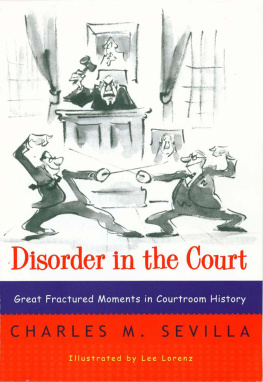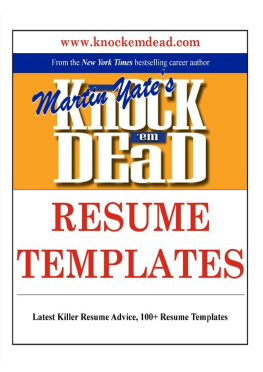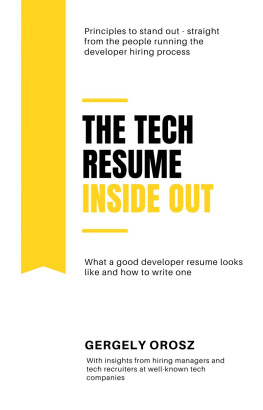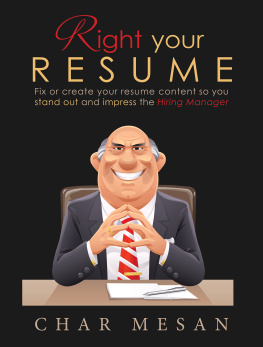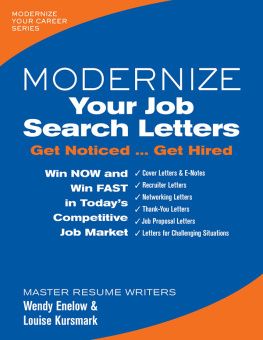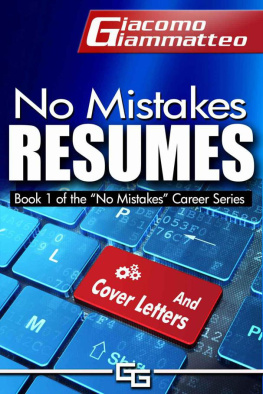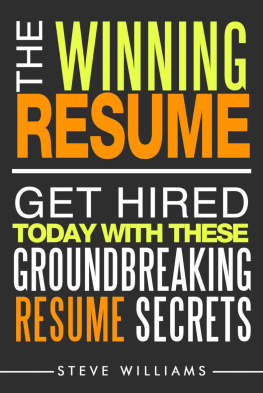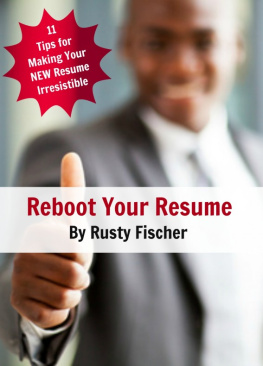The
Perfect Fit
This pandemic, find out how you can be the perfect fit for that IT job you have been eyeing for!
By Jo Sevilla
Table of Contents
Tell me something that is not in your resume!
Chapter 1: The Soft Skills
Communication
Customer-centricity
Business acumen
Chapter 2: The Hard Skills
Cloud Computing Engineers
Computer Network Specialists
Computer Support Specialists
Database Administrator
Information Technology Analysts
Information Technology Leadership
Information Security Specialist
Software/Application Developer
Web Developer
Chapter 3: Everything In Between
How bad do you want this job?
Why did you choose that company?
Did you pray for this job?
About the Author
Tell me something that is not in your resume!
This is usually the way I ask applicants to introduce themselves. I often ask them to tell me something which is not found in their resume. Why? Because most applicants would just prepare for and memorize what is in their curriculum vitae/resume. You better just ask us to read if that is the case. We want to get to know you as a person. We want a real conversation. We expect you to tell us a bit about your family perhaps, what you love doing during your spare time, what your pet peeves are, etc.
The way managers screen applicants for whatever position, may vary, but the intrinsic qualities that they look for are similar, one way or another and, guess what most of them are not found in the resume either.
As the hiring manager, we make an initial assessment whether you will be a good fit to the team or not. And because you will most likely be part of our reporting line, we want to know if there is a professional jive between us, as early as the interview process.
According to Jim Collins book Good to Great, the old saying People are your most important asset turns out to be wrong. People are not a companys most important asset. The right people are! So it is indeed critical to get the right people in the bus.
Given the current pandemic, most, if not all interviews are conducted virtually. This is an extra challenge for both sides to determine chemistry, but really, it can be done. With the numerous video call platforms, face to face interaction can easily be replicated.
This book will unravel key considerations in short-listing candidates for an IT post. Well, the soft skills part is applicable to any post, in fact. These are based from my actual experiences and observations in screening applicants for level 1 and support roles (some internal, a lot external) for the past ten (10) years.
So, what are you waiting for? Read away and find out how you can be The Perfect Fit!
2020 Jo Sevilla
Chapter 1: The Soft Skills 
S oft skills, according to Wikipedia, are a combination of interpersonal people skills, social skills, communication skills, character traits, attitudes, career attributes and emotional intelligence quotient (EQ) among others.
Do you need all of these in IT? Certainly! But how do you show the interviewer that you have just the right amount of the important elements to excel in the IT position you are applying for.
Lets just say that during interview, about 80% of the deciding factor would be the soft skills because hard skills would entail doing the actual job before fitness is proven.
In determining the right people, the good-to-great companies placed weight on character attributes than on specific educational background, practical skills, specialized knowledge or work experience...not that they are unimportant but they viewed these traits as more teachable/learnable, whereas they believed dimensions like character, work ethic, basic intelligence, dedication to fulfilling commitments and values are more ingrained. (Good to Great, Jim Collins)
Communication
There are two types of communication skills: verbal and written. Well, there is a third type which is non-verbal/body language. This should also be considered. You need to show acceptable competency levels on all fronts. How?
For the verbal type, there is no need for perfect grammar nor to prepare a speech likened to a valedictory address. Being conversational and getting your thoughts across are all that matter. You should be able to express yourself comfortably and in an organized way to the interviewer.
...dimensions like character, work ethic, basic intelligence, dedication to fulfilling commitments and values are more ingrained.
Be very ready to answer behavioral questions. What are they? They are an interviewers manner of questioning that aims to bring out the how in a specific situation. They do not only reveal your innate abilities and skills but also help assess whether a candidate can enumerate concrete examples of experiences that relate to the thrown question or not. And more importantly, your answers to these questions bring out character traits and career attributes to the surface. indeed.com has a good article sharing some of the most common behavioral questions asked in an interview.
Tell me about a time when you handled a challenging situation.
Tell me about a time when you made a mistake. What did you do to correct it?
Tell me about a time when you were in conflict with a peer and how the situation was resolved.
Tell me about how you work under pressure.
Give me an example of how you set goals.
Give me an example of a time you made a decision that was unpopular and explain how you handled implementing it.
Share an example of how you were able to motivate a coworker, your peers or your team.
Tell me about a goal you set and reached and how you achieved it.
Tell me about the last time your workday ended before you were able to get everything done.
Tell me about a goal you failed to achieve.
Please get the link at the Reference section if you want to read the full article as they also provided suggested answers to the questions above.
Red flags:
*Jumper - someone who consistently jumps from one company to another without significant tenure. You would hear various reasons from not being regularized to project ending fast to not liking the salary/benefits/work arrangements etc.
*Bad-mouther - someone who talks ill of current employer or boss. There is a way to communicate the reason for wanting to leave such as desire for growth, limitation on span of control, wanting financial progress, etc, without bad-mouthing anyone. And concerns for current employer should be settled off the bat.
The second type which is focused on the written part can quickly be assessed two ways: thru how your curriculum vitae (CV) or resume is written and the result of any written assessment the company asks you to complete.
In case you do not know the difference yet. Curriculum vitae gives a whole run-down of your work experiences together with the tasks you performed under each position. While resume only lists down roles/experiences that are relevant to the position that you are applying for.
For example, if you are applying for a Technical Support Representative role, a CV lists down your professional history including perhaps your first work as an attendant of a fast food chain. Or your short stint as a freelance copywriter. While a resume would only list down previous work which is connected to being a Technical Support such as perhaps a prior experience as Customer Service Rep, IT Support, Field Support, etc.
Green Flags:
*Minimum to no spelling/grammar mistakes found.
*Use of a professional looking template.
Next page

